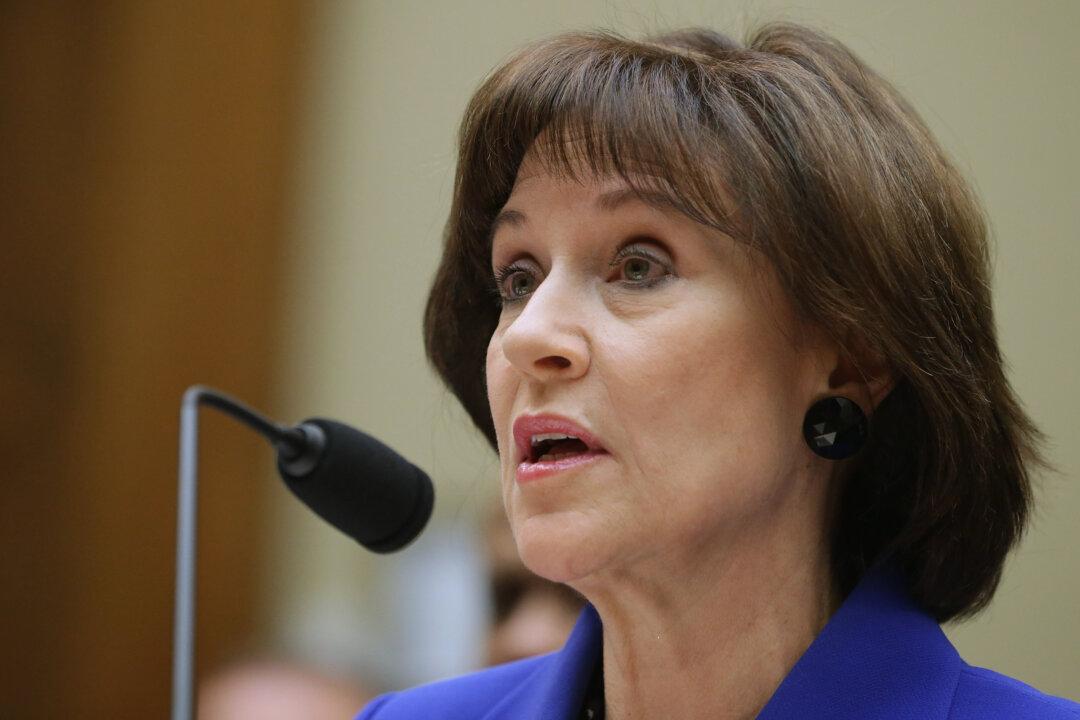WASHINGTON—Filing a federal tax return is about to get more complicated for millions of families because of President Barack Obama’s health law. But they shouldn’t expect much help from the Internal Revenue Service.
Got a question for the IRS? Good luck reaching someone by phone. The tax agency says only half of the 100 million people expected to call this year will be able to reach a person.
Callers who do get through may have to wait on hold for 30 minutes or more to talk to someone who will answer only the simplest questions.
“Taxpayers who need help are not getting it, and tax compliance is likely to suffer over the longer term if these problems are not quickly and decisively addressed,” said a report Wednesday by agency watchdog Nina E. Olson.
IRS Commissioner John Koskinen says budget cuts are forcing the agency to reduce taxpayer services and other functions. The number of audits will decline, technology upgrades will be delayed and the agency might be forced to shut down and furlough workers for two days later this year, Koskinen said.
The IRS will no longer help low-income taxpayers fill out their returns, and tax refunds could be delayed for people who file paper returns.
“It couldn’t be worse timing,” Koskinen said of the budget cuts.
Congress cut the IRS by $346 million for the budget year that ends Sept. 30. Koskinen says the agency’s $10.9 billion budget is its lowest since 2008. When adjusted for inflation, the budget hasn’t been this low since 1998, he said.
Republicans in Congress adamantly oppose Obama’s health law, so some have been working to starve the IRS of funds just as its role in implementing the law ramps up.
It won’t work, Koskinen said in an interview. The agency, he said, is required by law to help implement the health program. “The only places we have discretion are in information technology, tax enforcement, customer service.”
The spending cuts could actually cost the government money, Koskinen said. Having fewer enforcement agents will cost at least $2 billion in lost tax revenue this year, he estimated.
Service problems at the IRS will also make it harder for well-intentioned taxpayers to comply with the law, said Olson, who is the National Taxpayer Advocate, an independent office within the IRS.
“Without adequate support, many taxpayers will be frustrated, some will make potentially costly mistakes, others will incur higher compliance costs when forced to seek information and assistance from tax professionals,” she said.
“Still others,” Olson said, “will simply give up and not file.”
Olson released her annual report to Congress Wednesday, less than a week before the start of tax filing season on Tuesday. In it she raises concerns about the IRS' ability to help implement the health law.
She said the agency was unable to adequately test the accuracy of some information received from health insurance exchanges. Also, delays affected the training of IRS employees.
Olson noted that some of the issues involve other agencies. But, she added, “The IRS will certainly bear much of the public blame because many of the problems will arise in the context of return filing.”
Koskinen said the IRS has increased efforts to educate tax preparers and the public about the tax implications of the health law, devoting a section of the agency’s website to answering questions. Koskinen’s advice to taxpayers with questions: Don’t call the IRS unless you absolutely have to.
For the first time, tax filers will have to report information about their health insurance during the previous year. For most people who get health coverage through work or through government programs like Medicaid, it will mean simply checking a box.
Others who got insurance through state and federal marketplaces will have to file a new form, while people who received subsidies will have to provide more detailed information.
People who didn’t have health insurance last year face fines unless they qualify for a waiver, which requires more paperwork.
The subsidies were based on projected incomes, so families will need to report if actual incomes were higher or lower. If higher, they might have to pay back some of the subsidy, either through a smaller tax refund or a payment.
If their incomes were lower, they might qualify for a larger tax refund.
Taxpayers who get subsidies are supposed to notify the health exchanges during the year if their incomes change or if they have some other life event that changes their eligibility, said Kathy Pickering, executive director of the Tax Institute at H&R Block.
“If somebody got married or divorced, had a baby, got a job, lost a job, anything that changes their income, those consumers needed to go back to the marketplace and update their information,” Pickering said. “Most people didn’t know to do that or didn’t think to do it.”
Koskinen said he is “reasonably confident — very confident” the IRS has successfully upgraded its computer systems to handle additional taxpayer information required by the health law, even though Congress refused to pay for it, rejecting the agency’s $600 million request.
“In some ways the Congress appeared to be trying to do its best to keep us from being able to get operational this time,” Koskinen said.
From The Associated Press
